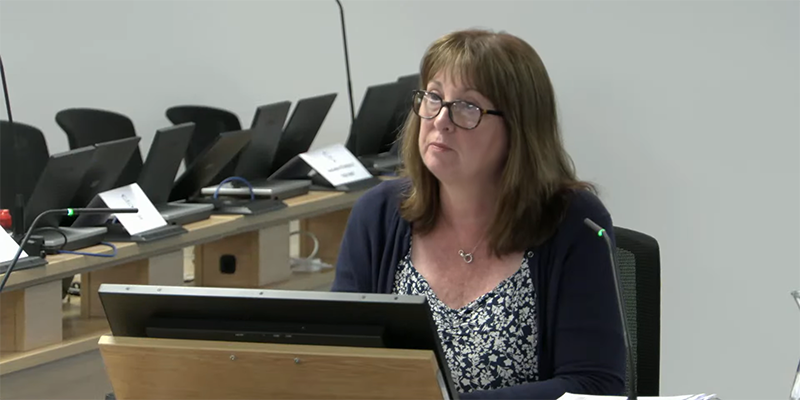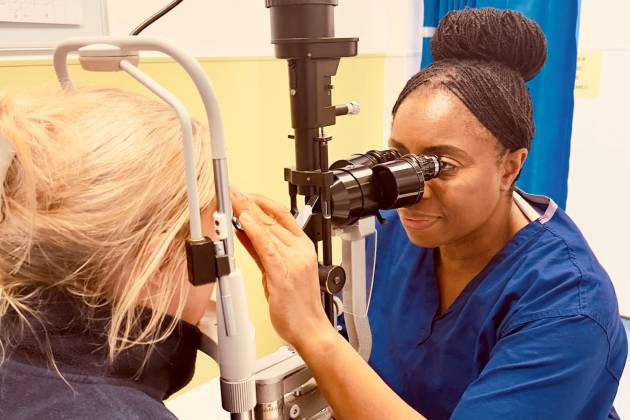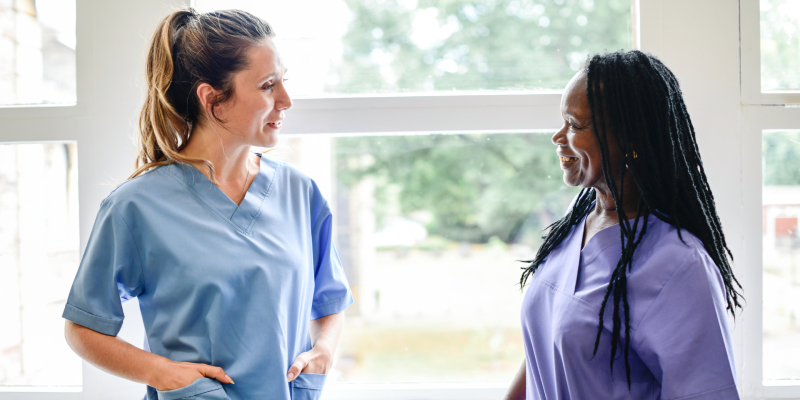News
RCN expert declares pandemic preparedness ‘inadequate’ in evidence to COVID inquiry
Infection, prevention and control specialist nurse Rose Gallagher said the UK government planned for the wrong pandemic, didn’t act on learnings from previous outbreaks and failed to prepare the right protective equipment for respiratory infections like COVID-19.

Connect with us:
The government wasn’t prepared for COVID-19 because it was planning for the wrong pandemic, according to the first nurse to give evidence in the UK COVID-19 Inquiry.
The RCN’s Rose Gallagher MBE, a nurse, expert and professional lead in infection, prevention and control, gave evidence to the first module of the inquiry examining resilience and preparedness.
She told the inquiry that years of underfunding, health service restructures and a failure to consult key professions led to the UK and the NHS not being prepared for the COVID-19 pandemic.
She said the nursing workforce crisis was already well entrenched before COVID-19 struck due to a long-term lack of investment and planning. Chronic nursing shortages, especially in emergency and critical care, significantly undermined the UK’s ability to deal with a pandemic on this scale.
“We went into the pandemic about 50,000 nurses short,” said Rose. “That immediately put us at risk when we needed to surge capacity to support patients who were infected, either at home or in hospitals.”
Lessons from previous incidents hadn’t been acted upon, Rose told the inquiry. Nursing experts weren’t involved in shaping guidance and decisions affecting the nursing workforce and workplaces weren’t prepared to either supply or “fit test” facemasks, which were vital to prevent health care workers catching COVID-19.
“If you’re planning for a pandemic, you need to consider all eventualities,” Rose stressed during her oral evidence session. “You need to consider the need for respiratory protective equipment (RPE) for an infection that is spread predominantly through the respiratory route.
“It’s my view that inadequate consideration was given to, not just the use of RPE for a prolonged period, but also which elements of the health care system would need to use RPE if we had widespread infection.”
Contributing on behalf of the RCN both verbally and in writing, Rose added: “The government were planning for the wrong pandemic and focused too much on NHS hospitals, rather than including primary care and other care settings. They failed to act on lessons learnt and warnings, and ensure the right training was in place, before and during COVID-19.
“Endless restructures and reorganisations within the NHS and the Department of Health from 2012 onwards, together with a reconfiguration of public health didn’t help planning. By 2019, the NHS and UK government had lost much of its knowledge from previous incidents. Non-hospital settings such as care homes were not adequately prepared or supported.
“Despite learnings from previous incidents, those representing the nursing profession were not consulted or engaged in developing clinical guidance for COVID-19. Though we’re the largest part of the health care workforce, we were effectively shut out from key decision-making, and our voice and expertise were ignored.
“In short, nursing staff were put at risk before and during COVID-19 and we remain unprepared for any future emergence of COVID-19, or any other health emergency. The UK COVID-19 Inquiry and its findings will be crucial to shape the country's future plans for pandemic preparedness.”
Rose is the first nurse to contribute to the inquiry, which expects to hear from around 1,000 people by the time it concludes in 2026.











